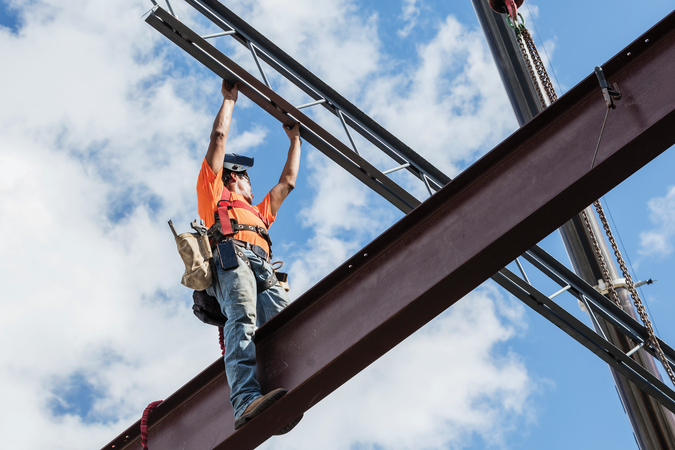Environmental Justice: Research and Community Partnerships
Examining how researchers and environmental justice organizations can collaborate to advance knowledge and work toward equitable solutions to environmental problems
Event Details
On January 19, 2022, Resources for the Future (RFF) and the Urban Institute hosted the fifth event in Exposure, a six-part webinar series on environmental justice. Effective partnerships between researchers and community organizations can advance understanding of the nature of environmental problems and underlying vulnerabilities in disadvantaged communities, as well as help to identify policy and program solutions. These partnerships leverage complementary knowledge bases and skill sets: researchers often bring data and analytical tools to carefully measure and document impacts; community organizations elevate the lived experiences and concerns of residents and expand the research findings. At this event, a panel of experts discussed how to make these partnerships work to advance environmental justice knowledge and work toward equitable solutions to environmental problems.
Speakers
- Eddie Bautista, New York City Environmental Justice Alliance
- Bonnie Keeler, University of Minnesota
- Michael Méndez, University of California, Irvine
- Anne Junod, Urban Institute (Moderator)
- Margaret Walls, Resources for the Future (Moderator)
Event Video
Additional Materials
Reading List
- Climate Change from the Streets: How Conflict and Collaboration Strengthen the Environmental Justice Movement by Michael Méndez
- "The (In)visible Victims of Disaster: Understanding the Vulnerability of Undocumented Latino/a and Indigenous Immigrants" by Michael Méndez, Genevieve Flores-Haro, and Lucas Zucker
- Kūlana Noi‘i report by the Hawai‘i Sea Grant College Program presenting guidelines to ensure that research projects with community members are equitable and reciprocal
- "Mapping a Path Towards Equity: Reflections on a Co-Creative Community Praxis"by Kevin Ehrman-Solberg, Bonnie Keeler, Kate Derickson, and Kirsten Delegard
- "Reflections on Crafting a Policy Toolkit for Equitable Green Infrastructure" by Kate Derickson, Mira Klein, and Bonnie Keeler
- "Fugitive Chemicals and Environmental Justice: A Model for Environmental Monitoring Following Climate-Related Disasters" by Jaime Madrigano, Juan Camilo Osorio, Eddie Bautista, Ryan Chavez, Christine F. Chaisson, Erika Meza, Regina A. Shih, and Ramya Chari
- "New York City Environmental Justice Alliance Waterfront Justice Project" by Eddie Bautista, Eva Hanhardt, Juan Camilo Osorio, and Natasha Dwyer
- 2020 NYC Climate Justice Agenda: A Critical Decade for Climate, Health, and Equity report by the New York City Environmental Justice Alliance
- "The Truth, the Whole Truth, and Nothing but the Ground-Truth: Methods to Advance Environmental Justice and Researcher–Community Partnerships" by James Sadd, Rachel Morello-Frosch, Manuel Pastor, Martha Matsuoka, Michele Prichard, and Vanessa Carter
Resources
- Beyond the Academy Network: An international network of sustainability researchers, led by University of Minnesota Professor Bonnie Keeler, committed to making universities more supportive of applied interdisciplinary research with real-world impact. Website includes resources, recordings of workshops, and more. A "Guidebook for the Engaged University" will be released in 2022 that will include a review of scholarship and practice on engagement.
Exposure: An RFF-Urban Institute Series on Environmental Justice
Environmental justice (EJ) is an imperative that is finally getting its national policy due. For many low-income neighborhoods, households of color, tribal communities, and other marginalized groups, environmental injustice compounds a legacy of social, economic, and political disenfranchisement. Recent presidential executive orders, appointments, and proposed legislation acknowledge the disproportionate burdens of negative environmental conditions and exposures, and reduced access to environmental benefits and amenities, placed on these populations.
Since the groundbreaking Toxic Wastes and Race and Dumping in Dixie published in the late 1980s first brought EJ issues to the fore, scholars have supported activists and journalists by investigating the mechanisms that create and perpetuate environmental inequities and exclusion and quantifying the extent of the problems. This combined scholarship and advocacy has led to improved monitoring and outcome tracking and some progress in finding solutions to persistent pollution problems. But inequities persist—and as the United States begins to reckon with the climate crisis, designing climate policies that benefit all communities will be imperative.
RFF and the Urban Institute are hosting this webinar series on the current state of EJ research across disciplines, examining how research can inform policy and identifying remaining gaps in knowledge. With panels of experts from the research and EJ advocacy communities, we will take a deep dive into issues related to cumulative environmental impacts, EJ screening tools, energy equity and transitions, benefit-cost analysis and regulatory design, disaster and climate adaptation, and the design of climate policies. The series will also ask how research can inform better policy design and public investments to remedy inequities, past and present.








